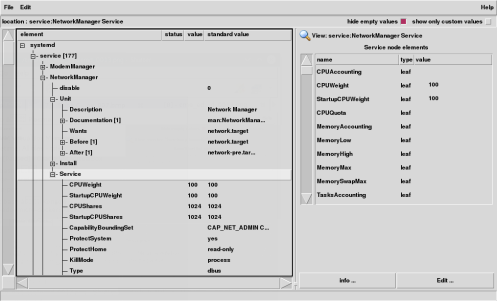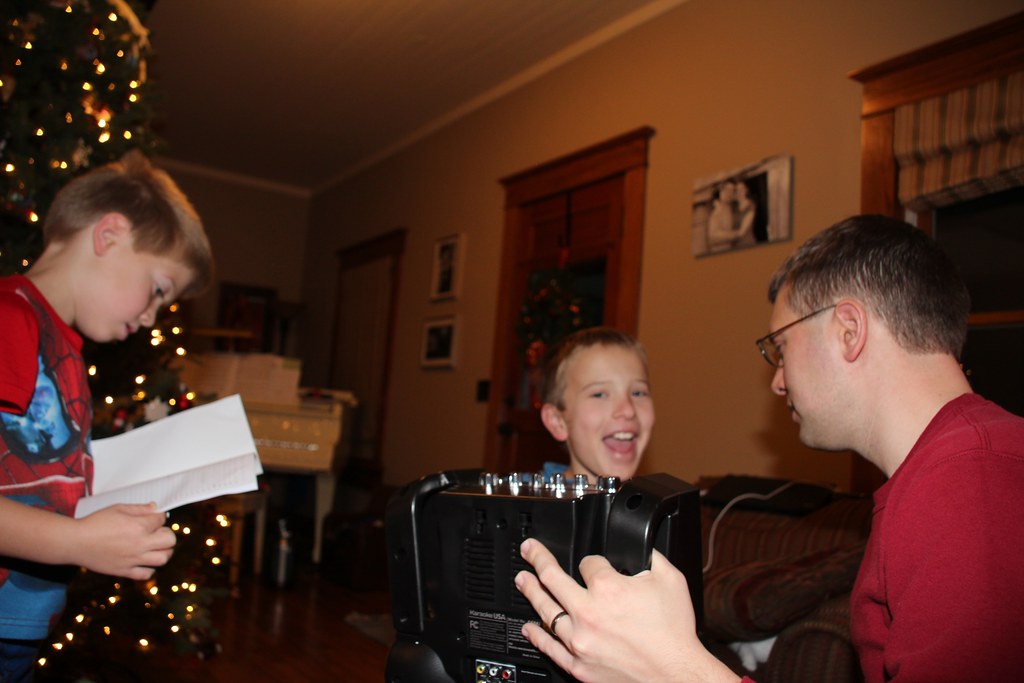In the
previous post Open Build Service software architecture has been overviewed. In the current blog post, a tutorial on setting up a package build with OBS from Debian packages is presented.
Steps:
- Generate a test environment by creating Stretch/SID VM
- Enable experimental repository
- Install OBS server, api, worker and osc CLI packages
- Ensure all OBS services are running
- Create an OBS project for Download on Demand (DoD)
- Create an OBS project linked to DoD
- Adding a package to the project
- Troubleshooting OBS
Generate a test environment by creating Stretch/SID VM
Really, use whatever suits you best, but please create an untrusted test environment for this one.
In the current tutorial it assumes $hostname is stretch , which should be stretch or sid suite.
Be aware that copy & paste configuration files from current post might lead you into broken characters (i.e. ).
Debian Stretch weekly netinst CD
Enable experimental repository
# echo "deb http://httpredir.debian.org/debian experimental main" >> /etc/apt/sources.list.d/experimental.list
# apt-get update
Install and setup OBS server, api, worker and osc CLI packages
# apt-get install obs-server obs-api obs-worker osc
In the install process mysql database is needed, therefore if mysql server is not setup, a password needs to be provided.
When OBS API database
obs-api is created, we need to pick a password for it, provide opensuse . The obs-api package will configure apache2 https webserver (creating a dummy certificate for stretch ) to serve OBS webui.
Add stretch and obs aliases to localhost entry in your
/etc/hosts file.
Enable worker by setting ENABLED=1 in
/etc/default/obsworker
Try to connect to the web UI
https://stretch/
Login into OBS webui, default login credentials: Admin/opensuse).
From command line tool, try to list projects in OBS
$ osc -A https://stretch ls
Accept dummy certificate and provide credentials (defaults: Admin/opensuse)
If the install proceeds as expected follow to the next step.
Ensure all OBS services are running
# backend services
obsrun 813 0.0 0.9 104960 20448 ? Ss 08:33 0:03 /usr/bin/perl -w /usr/lib/obs/server/bs_dodup
obsrun 815 0.0 1.5 157512 31940 ? Ss 08:33 0:07 /usr/bin/perl -w /usr/lib/obs/server/bs_repserver
obsrun 1295 0.0 1.6 157644 32960 ? S 08:34 0:07 \_ /usr/bin/perl -w /usr/lib/obs/server/bs_repserver
obsrun 816 0.0 1.8 167972 38600 ? Ss 08:33 0:08 /usr/bin/perl -w /usr/lib/obs/server/bs_srcserver
obsrun 1296 0.0 1.8 168100 38864 ? S 08:34 0:09 \_ /usr/bin/perl -w /usr/lib/obs/server/bs_srcserver
memcache 817 0.0 0.6 346964 12872 ? Ssl 08:33 0:11 /usr/bin/memcached -m 64 -p 11211 -u memcache -l 127.0.0.1
obsrun 818 0.1 0.5 78548 11884 ? Ss 08:33 0:41 /usr/bin/perl -w /usr/lib/obs/server/bs_dispatch
obsserv+ 819 0.0 0.3 77516 7196 ? Ss 08:33 0:05 /usr/bin/perl -w /usr/lib/obs/server/bs_service
mysql 851 0.0 0.0 4284 1324 ? Ss 08:33 0:00 /bin/sh /usr/bin/mysqld_safe
mysql 1239 0.2 6.3 1010744 130104 ? Sl 08:33 1:31 \_ /usr/sbin/mysqld --basedir=/usr --datadir=/var/lib/mysql --plugin-dir=/usr/lib/mysql/plugin --log-error=/var/log/mysql/error.log --pid-file=/var/run/mysqld/mysqld.pid --socket=/var/run/mysqld/mysqld.sock --port=3306
# web services
root 1452 0.0 0.1 110020 3968 ? Ss 08:34 0:01 /usr/sbin/apache2 -k start
root 1454 0.0 0.1 435992 3496 ? Ssl 08:34 0:00 \_ Passenger watchdog
root 1460 0.3 0.2 651044 5188 ? Sl 08:34 1:46 \_ Passenger core
nobody 1465 0.0 0.1 444572 3312 ? Sl 08:34 0:00 \_ Passenger ust-router
www-data 1476 0.0 0.1 855892 2608 ? Sl 08:34 0:09 \_ /usr/sbin/apache2 -k start
www-data 1477 0.0 0.1 856068 2880 ? Sl 08:34 0:09 \_ /usr/sbin/apache2 -k start
www-data 1761 0.0 4.9 426868 102040 ? Sl 08:34 0:29 delayed_job.0
www-data 1767 0.0 4.8 425624 99888 ? Sl 08:34 0:30 delayed_job.1
www-data 1775 0.0 4.9 426516 101708 ? Sl 08:34 0:28 delayed_job.2
nobody 1788 0.0 5.7 496092 117480 ? Sl 08:34 0:03 Passenger RubyApp: /usr/share/obs/api
nobody 1796 0.0 4.9 488888 102176 ? Sl 08:34 0:00 Passenger RubyApp: /usr/share/obs/api
www-data 1814 0.0 4.5 282576 92376 ? Sl 08:34 0:22 delayed_job.1000
www-data 1829 0.0 4.4 282684 92228 ? Sl 08:34 0:22 delayed_job.1010
www-data 1841 0.0 4.5 282932 92536 ? Sl 08:34 0:22 delayed_job.1020
www-data 1855 0.0 4.9 427988 101492 ? Sl 08:34 0:29 delayed_job.1030
www-data 1865 0.2 5.0 492500 102964 ? Sl 08:34 1:09 clockworkd.clock
www-data 1899 0.0 0.0 87100 1400 ? S 08:34 0:00 /usr/bin/searchd --pidfile --config /usr/share/obs/api/config/production.sphinx.conf
www-data 1900 0.1 0.4 161620 8276 ? Sl 08:34 0:51 \_ /usr/bin/searchd --pidfile --config /usr/share/obs/api/config/production.sphinx.conf
# OBS worker
root 1604 0.0 0.0 28116 1492 ? Ss 08:34 0:00 SCREEN -m -d -c /srv/obs/run/worker/boot/screenrc
root 1605 0.0 0.9 75424 18764 pts/0 Ss+ 08:34 0:06 \_ /usr/bin/perl -w ./bs_worker --hardstatus --root /srv/obs/worker/root_1 --statedir /srv/obs/run/worker/1 --id stretch:1 --reposerver http://obs:5252 --jobs 1
Create an OBS project for Download on Demand (DoD)
Create a meta project file:
$ osc -A https://stretch:443 meta prj Debian:8 -e
<project name= Debian:8 >
<title>Debian 8 DoD</title>
<description>Debian 8 DoD</description>
<person userid= Admin role= maintainer />
<repository name= main >
<download arch= x86_64 url= http://deb.debian.org/debian/jessie/main repotype= deb />
<arch>x86_64</arch>
</repository>
</project>
Visit webUI to check project configuration
Create a meta project configuration file:
$ osc -A https://stretch:443 meta prjconf Debian:8 -e
Add the following file, as found at
build.opensuse.org
Repotype: debian
# create initial user
Preinstall: base-passwd
Preinstall: user-setup
# required for preinstall images
Preinstall: perl
# preinstall essentials + dependencies
Preinstall: base-files base-passwd bash bsdutils coreutils dash debconf
Preinstall: debianutils diffutils dpkg e2fslibs e2fsprogs findutils gawk
Preinstall: gcc-4.9-base grep gzip hostname initscripts insserv libacl1
Preinstall: libattr1 libblkid1 libbz2-1.0 libc-bin libc6 libcomerr2 libdb5.3
Preinstall: libgcc1 liblzma5 libmount1 libncurses5 libpam-modules
Preinstall: libpcre3 libsmartcols1
Preinstall: libpam-modules-bin libpam-runtime libpam0g libreadline6
Preinstall: libselinux1 libsemanage-common libsemanage1 libsepol1 libsigsegv2
Preinstall: libslang2 libss2 libtinfo5 libustr-1.0-1 libuuid1 login lsb-base
Preinstall: mount multiarch-support ncurses-base ncurses-bin passwd perl-base
Preinstall: readline-common sed sensible-utils sysv-rc sysvinit sysvinit-utils
Preinstall: tar tzdata util-linux zlib1g
Runscripts: base-passwd user-setup base-files gawk
VMinstall: libdevmapper1.02.1
Order: user-setup:base-files
# Essential packages (this should also pull the dependencies)
Support: base-files base-passwd bash bsdutils coreutils dash debianutils
Support: diffutils dpkg e2fsprogs findutils grep gzip hostname libc-bin
Support: login mount ncurses-base ncurses-bin perl-base sed sysvinit
Support: sysvinit-utils tar util-linux
# Build-essentials
Required: build-essential
Prefer: build-essential:make
# build script needs fakeroot
Support: fakeroot
# lintian support would be nice, but breaks too much atm
#Support: lintian
# helper tools in the chroot
Support: less kmod net-tools procps psmisc strace vim
# everything below same as for Debian:6.0 (apart from the version macros ofc)
# circular dependendencies in openjdk stack
Order: openjdk-6-jre-lib:openjdk-6-jre-headless
Order: openjdk-6-jre-headless:ca-certificates-java
Keep: binutils cpp cracklib file findutils gawk gcc gcc-ada gcc-c++
Keep: gzip libada libstdc++ libunwind
Keep: libunwind-devel libzio make mktemp pam-devel pam-modules
Keep: patch perl rcs timezone
Prefer: cvs libesd0 libfam0 libfam-dev expect
Prefer: gawk locales default-jdk
Prefer: xorg-x11-libs libpng fam mozilla mozilla-nss xorg-x11-Mesa
Prefer: unixODBC libsoup glitz java-1_4_2-sun gnome-panel
Prefer: desktop-data-SuSE gnome2-SuSE mono-nunit gecko-sharp2
Prefer: apache2-prefork openmotif-libs ghostscript-mini gtk-sharp
Prefer: glib-sharp libzypp-zmd-backend mDNSResponder
Prefer: -libgcc-mainline -libstdc++-mainline -gcc-mainline-c++
Prefer: -libgcj-mainline -viewperf -compat -compat-openssl097g
Prefer: -zmd -OpenOffice_org -pam-laus -libgcc-tree-ssa -busybox-links
Prefer: -crossover-office -libgnutls11-dev
# alternative pkg-config implementation
Prefer: -pkgconf
Prefer: -openrc
Prefer: -file-rc
Conflict: ghostscript-library:ghostscript-mini
Ignore: sysvinit:initscripts
Ignore: aaa_base:aaa_skel,suse-release,logrotate,ash,mingetty,distribution-release
Ignore: gettext-devel:libgcj,libstdc++-devel
Ignore: pwdutils:openslp
Ignore: pam-modules:resmgr
Ignore: rpm:suse-build-key,build-key
Ignore: bind-utils:bind-libs
Ignore: alsa:dialog,pciutils
Ignore: portmap:syslogd
Ignore: fontconfig:freetype2
Ignore: fontconfig-devel:freetype2-devel
Ignore: xorg-x11-libs:freetype2
Ignore: xorg-x11:x11-tools,resmgr,xkeyboard-config,xorg-x11-Mesa,libusb,freetype2,libjpeg,libpng
Ignore: apache2:logrotate
Ignore: arts:alsa,audiofile,resmgr,libogg,libvorbis
Ignore: kdelibs3:alsa,arts,pcre,OpenEXR,aspell,cups-libs,mDNSResponder,krb5,libjasper
Ignore: kdelibs3-devel:libvorbis-devel
Ignore: kdebase3:kdebase3-ksysguardd,OpenEXR,dbus-1,dbus-1-qt,hal,powersave,openslp,libusb
Ignore: kdebase3-SuSE:release-notes
Ignore: jack:alsa,libsndfile
Ignore: libxml2-devel:readline-devel
Ignore: gnome-vfs2:gnome-mime-data,desktop-file-utils,cdparanoia,dbus-1,dbus-1-glib,krb5,hal,libsmbclient,fam,file_alteration
Ignore: libgda:file_alteration
Ignore: gnutls:lzo,libopencdk
Ignore: gnutls-devel:lzo-devel,libopencdk-devel
Ignore: pango:cairo,glitz,libpixman,libpng
Ignore: pango-devel:cairo-devel
Ignore: cairo-devel:libpixman-devel
Ignore: libgnomeprint:libgnomecups
Ignore: libgnomeprintui:libgnomecups
Ignore: orbit2:libidl
Ignore: orbit2-devel:libidl,libidl-devel,indent
Ignore: qt3:libmng
Ignore: qt-sql:qt_database_plugin
Ignore: gtk2:libpng,libtiff
Ignore: libgnomecanvas-devel:glib-devel
Ignore: libgnomeui:gnome-icon-theme,shared-mime-info
Ignore: scrollkeeper:docbook_4,sgml-skel
Ignore: gnome-desktop:libgnomesu,startup-notification
Ignore: python-devel:python-tk
Ignore: gnome-pilot:gnome-panel
Ignore: gnome-panel:control-center2
Ignore: gnome-menus:kdebase3
Ignore: gnome-main-menu:rug
Ignore: libbonoboui:gnome-desktop
Ignore: postfix:pcre
Ignore: docbook_4:iso_ent,sgml-skel,xmlcharent
Ignore: control-center2:nautilus,evolution-data-server,gnome-menus,gstreamer-plugins,gstreamer,metacity,mozilla-nspr,mozilla,libxklavier,gnome-desktop,startup-notification
Ignore: docbook-xsl-stylesheets:xmlcharent
Ignore: liby2util-devel:libstdc++-devel,openssl-devel
Ignore: yast2:yast2-ncurses,yast2-theme-SuSELinux,perl-Config-Crontab,yast2-xml,SuSEfirewall2
Ignore: yast2-core:netcat,hwinfo,wireless-tools,sysfsutils
Ignore: yast2-core-devel:libxcrypt-devel,hwinfo-devel,blocxx-devel,sysfsutils,libstdc++-devel
Ignore: yast2-packagemanager-devel:rpm-devel,curl-devel,openssl-devel
Ignore: yast2-devtools:perl-XML-Writer,libxslt,pkgconfig
Ignore: yast2-installation:yast2-update,yast2-mouse,yast2-country,yast2-bootloader,yast2-packager,yast2-network,yast2-online-update,yast2-users,release-notes,autoyast2-installation
Ignore: yast2-bootloader:bootloader-theme
Ignore: yast2-packager:yast2-x11
Ignore: yast2-x11:sax2-libsax-perl
Ignore: openslp-devel:openssl-devel
Ignore: java-1_4_2-sun:xorg-x11-libs
Ignore: java-1_4_2-sun-devel:xorg-x11-libs
Ignore: kernel-um:xorg-x11-libs
Ignore: tetex:xorg-x11-libs,expat,fontconfig,freetype2,libjpeg,libpng,ghostscript-x11,xaw3d,gd,dialog,ed
Ignore: yast2-country:yast2-trans-stats
Ignore: susehelp:susehelp_lang,suse_help_viewer
Ignore: mailx:smtp_daemon
Ignore: cron:smtp_daemon
Ignore: hotplug:syslog
Ignore: pcmcia:syslog
Ignore: avalon-logkit:servlet
Ignore: jython:servlet
Ignore: ispell:ispell_dictionary,ispell_english_dictionary
Ignore: aspell:aspel_dictionary,aspell_dictionary
Ignore: smartlink-softmodem:kernel,kernel-nongpl
Ignore: OpenOffice_org-de:myspell-german-dictionary
Ignore: mediawiki:php-session,php-gettext,php-zlib,php-mysql,mod_php_any
Ignore: squirrelmail:mod_php_any,php-session,php-gettext,php-iconv,php-mbstring,php-openssl
Ignore: simias:mono(log4net)
Ignore: zmd:mono(log4net)
Ignore: horde:mod_php_any,php-gettext,php-mcrypt,php-imap,php-pear-log,php-pear,php-session,php
Ignore: xerces-j2:xml-commons-apis,xml-commons-resolver
Ignore: xdg-menu:desktop-data
Ignore: nessus-libraries:nessus-core
Ignore: evolution:yelp
Ignore: mono-tools:mono(gconf-sharp),mono(glade-sharp),mono(gnome-sharp),mono(gtkhtml-sharp),mono(atk-sharp),mono(gdk-sharp),mono(glib-sharp),mono(gtk-sharp),mono(pango-sharp)
Ignore: gecko-sharp2:mono(glib-sharp),mono(gtk-sharp)
Ignore: vcdimager:libcdio.so.6,libcdio.so.6(CDIO_6),libiso9660.so.4,libiso9660.so.4(ISO9660_4)
Ignore: libcdio:libcddb.so.2
Ignore: gnome-libs:libgnomeui
Ignore: nautilus:gnome-themes
Ignore: gnome-panel:gnome-themes
Ignore: gnome-panel:tomboy
Substitute: utempter
%ifnarch s390 s390x ppc ia64
Substitute: java2-devel-packages java-1_4_2-sun-devel
%else
%ifnarch s390x
Substitute: java2-devel-packages java-1_4_2-ibm-devel
%else
Substitute: java2-devel-packages java-1_4_2-ibm-devel xorg-x11-libs-32bit
%endif
%endif
Substitute: yast2-devel-packages docbook-xsl-stylesheets doxygen libxslt perl-XML-Writer popt-devel sgml-skel update-desktop-files yast2 yast2-devtools yast2-packagemanager-devel yast2-perl-bindings yast2-testsuite
#
# SUSE compat mappings
#
Substitute: gcc-c++ gcc
Substitute: libsigc++2-devel libsigc++-2.0-dev
Substitute: glibc-devel-32bit
Substitute: pkgconfig pkg-config
%ifarch %ix86
Substitute: kernel-binary-packages kernel-default kernel-smp kernel-bigsmp kernel-debug kernel-um kernel-xen kernel-kdump
%endif
%ifarch ia64
Substitute: kernel-binary-packages kernel-default kernel-debug
%endif
%ifarch x86_64
Substitute: kernel-binary-packages kernel-default kernel-smp kernel-xen kernel-kdump
%endif
%ifarch ppc
Substitute: kernel-binary-packages kernel-default kernel-kdump kernel-ppc64 kernel-iseries64
%endif
%ifarch ppc64
Substitute: kernel-binary-packages kernel-ppc64 kernel-iseries64
%endif
%ifarch s390
Substitute: kernel-binary-packages kernel-s390
%endif
%ifarch s390x
Substitute: kernel-binary-packages kernel-default
%endif
%define debian_version 800
Macros:
%debian_version 800
Visit webUI to check project configuration
Create an OBS project linked to DoD
$ osc -A https://stretch:443 meta prj test -e
<project name= test >
<title>test</title>
<description>test</description>
<person userid= Admin role= maintainer />
<repository name= Debian_8.0 >
<path project= Debian:8 repository= main />
<arch>x86_64</arch>
</repository>
</project>
Visit webUI to check project configuration
Adding a package to the project
$ osc -A https://stretch:443 co test ; cd test
$ mkdir hello ; cd hello ; apt-get source -d hello ; cd - ;
$ osc add hello
$ osc ci -m "New import" hello
The package should go to dispatched state then get in blocked state while it downloads build dependencies from DoD link, eventually it should start building. Please check the journal logs to check if something went wrong or gets stuck.
Visit webUI to check hello package build state
OBS logging to the journal
Check in the journal logs everything went fine
:
$ sudo journalctl -u obsdispatcher.service -u obsdodup.service -u obsscheduler@x86_64.service -u obsworker.service -u obspublisher.service
Troubleshooting
Currently we are facing few issues with web UI:
And there are more issues that have not been reported, please do reportbug obs-api .

 Maintaining
Maintaining 





 I don't often write on this blog, and when I do, it's either tech related,
or light life stuff.
Over the next few weeks, it's going to get a lot more political. If you
currently follow this blog for its technical content, you may be tempted to
tune out. I would encourage you to stay and listen. I'm passionate about
the technology that I work on; but the greatest problems facing our world
today are not ones that will be solved with software.
American democracy is in bad shape, and it's because of what we're doing to
it. This is not a problem of the Right or of the Left; it is not a problem
that began with the election of Donald Trump, and it's not a problem that
will go away at the end of his term. It is partly a structural problem with
the way our elections work, but more than that it's a problem of how we're
splitting into separate tribes, isolating ourselves from those who don't
agree with us.
As
I don't often write on this blog, and when I do, it's either tech related,
or light life stuff.
Over the next few weeks, it's going to get a lot more political. If you
currently follow this blog for its technical content, you may be tempted to
tune out. I would encourage you to stay and listen. I'm passionate about
the technology that I work on; but the greatest problems facing our world
today are not ones that will be solved with software.
American democracy is in bad shape, and it's because of what we're doing to
it. This is not a problem of the Right or of the Left; it is not a problem
that began with the election of Donald Trump, and it's not a problem that
will go away at the end of his term. It is partly a structural problem with
the way our elections work, but more than that it's a problem of how we're
splitting into separate tribes, isolating ourselves from those who don't
agree with us.
As 
 Here is my monthly update covering what I have been doing in the free software world (
Here is my monthly update covering what I have been doing in the free software world (
 Several years ago I've
Several years ago I've 
